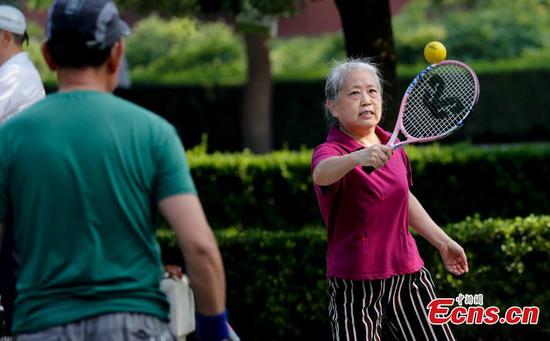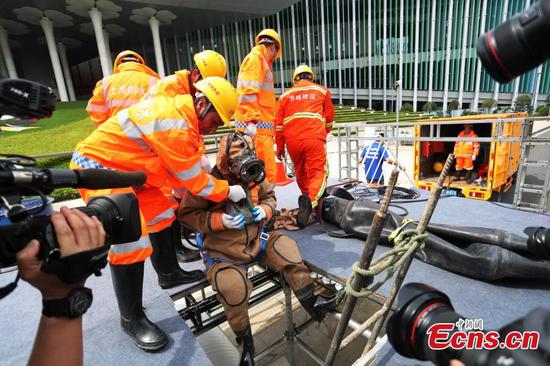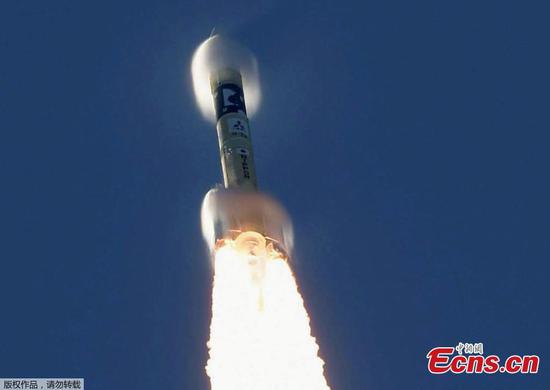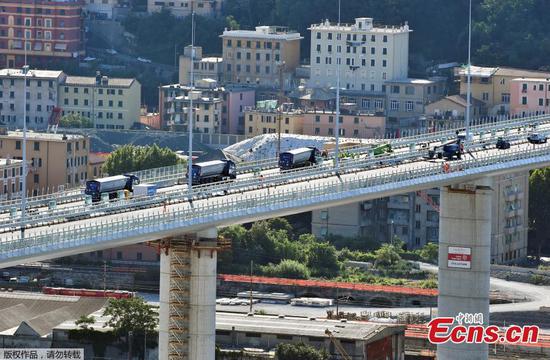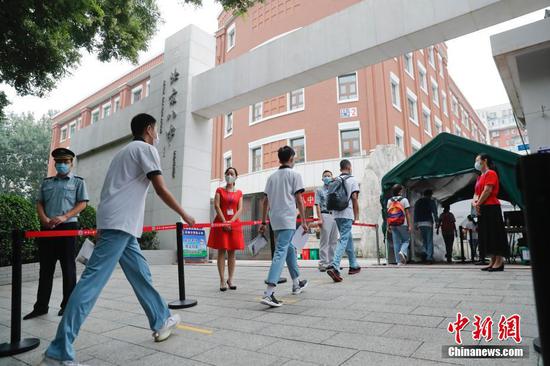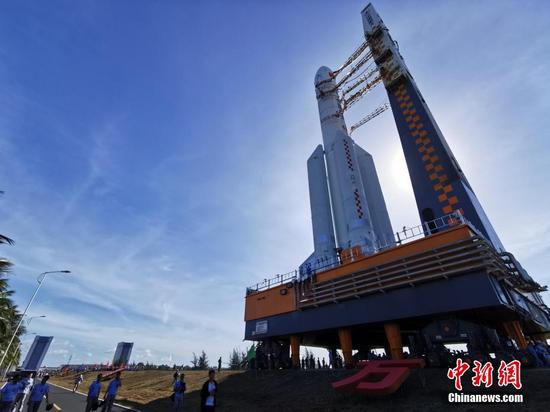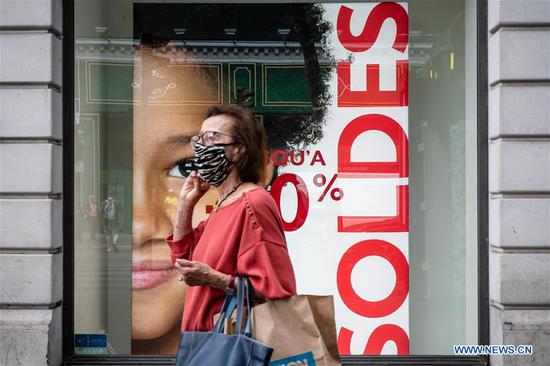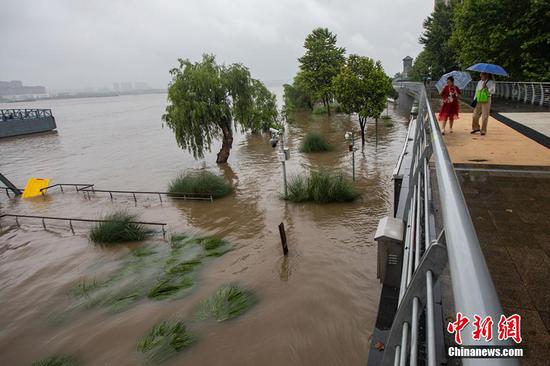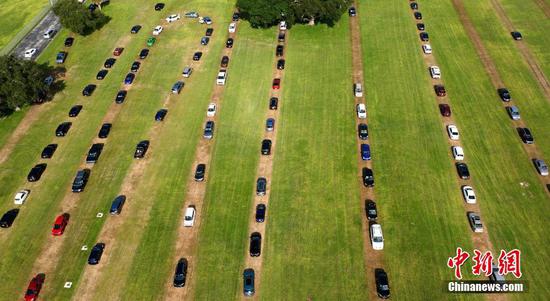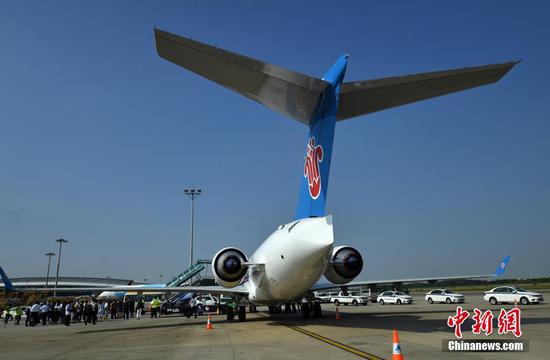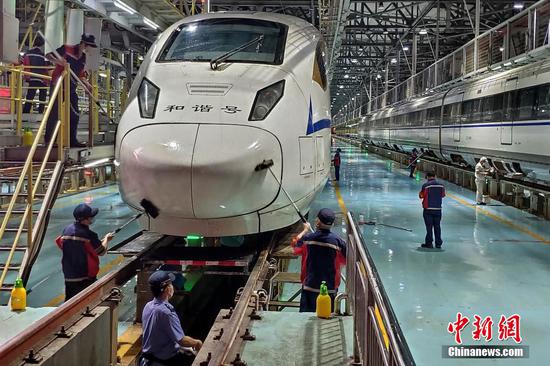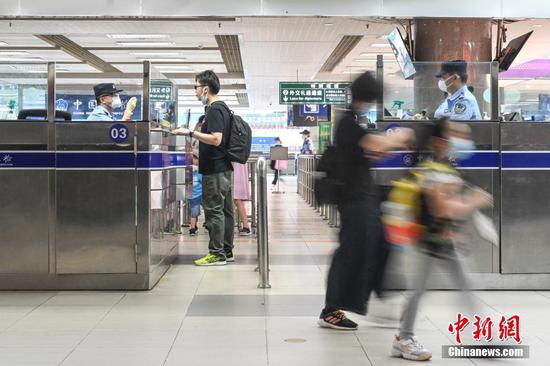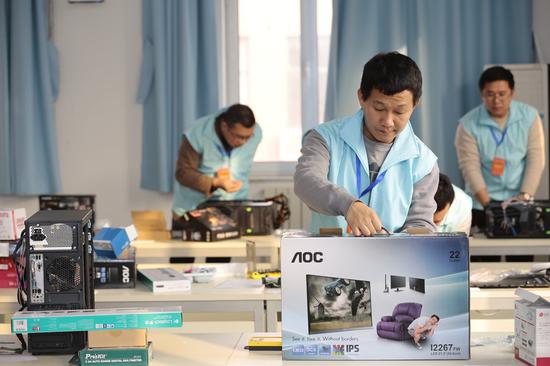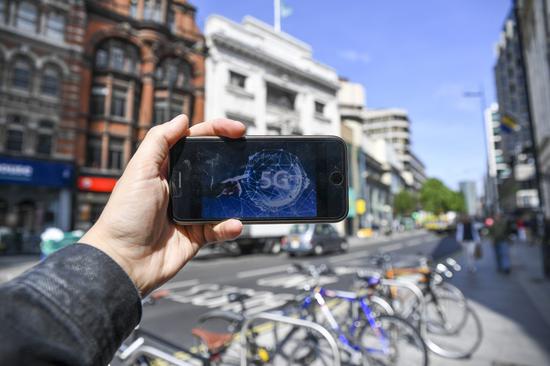
Photo taken on May 30, 2019 shows a 5G network logo on the screen of a mobile phone in London, Britain. (Xinhua/Alberto Pezzali)
WIDER ECONOMIC IMPACT
Last year, Huawei commissioned Oxford Economics to assess the economic cost of restricting competition in eight markets, which includes Britain, France, Germany, and the United States.
The report showed that restricting a key supplier of 5G infrastructure from helping to build a country's network would increase that country's 5G investment costs by between eight percent and 29 percent over the next decade.
In Britain, this translates to 1.8 billion to 11.8 billion dollars in estimated permanent loss in gross domestic product due to delay in 5G rollout, according to the report.
Over the decades, Huawei has played an integral part in building Britain's 3G and 4G networks, with a proven track record. The Chinese company is also a leader in the field of next-generation telecommunications, with the most 5G patents globally as of 2019 and the largest share of 5G standard contributions, according to a study by market intelligence company IPlytics.
"Widely available 5G services are a pillar of a strong digital and data-driven economy and any delays in rollout can threaten long-term economic competitiveness," said Nguyen.
"Faced with economic shocks from Brexit as well as COVID-19, the UK's economic recovery is intrinsically linked to using the latest digital technologies to save costs and raise productivity," Nguyen said.
"However, if the delays in rollout are significant, the potential loss of high-speed, low-latency and energy efficient 5G services can be very detrimental to UK businesses and consumers in the medium- to long-run," he said.
"On the Huawei question ... I think that Britain is retreating from the notion of itself as a major global player," said British scholar and political commentator Martin Jacques in a recent interview with Xinhua.










